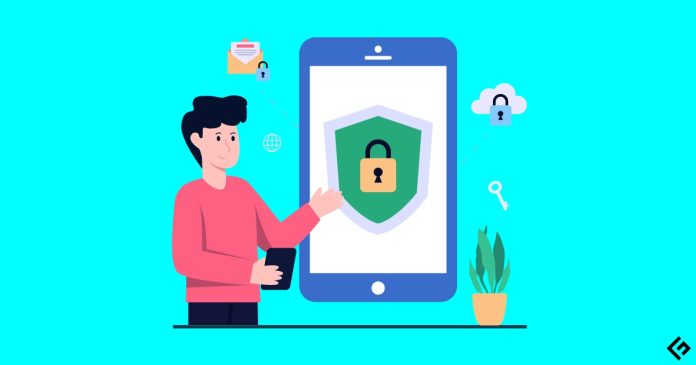Understanding Data Collection
Data collection is the process of gathering and analyzing data from various sources to gain insights and make informed decisions. With the increase in technology, there has been a significant rise in data collection through various means such as websites, applications, and devices like smartphones. However, this has also raised concerns about privacy and security. Mobile devices are particularly vulnerable to data collection due to their constant connection to the internet and the various sensors and features they possess. Hence, it is crucial to understand how data collection works and the potential risks associated with it.
Challenges with Traditional Data Collection Methods
Traditional methods of data collection involve the use of desktop computers and wired connections, which limits where and when data can be collected. This approach is not feasible for collecting data on the go or in remote locations. Additionally, it may not accurately capture real-time data due to transmission delays.
Moreover, traditional methods are usually more expensive and time-consuming, making it difficult for organizations to collect large amounts of data at a reasonable cost. These challenges highlight the need for alternative methods of data collection that are efficient, cost-effective, and can be done on the go.
The Rise of Mobile Proxies
Mobile proxies are intermediaries between a user’s mobile device and the internet. They allow users to route their internet traffic through a remote server, masking their real IP address and location. This means that the data collected from these devices will be associated with the proxy server’s IP address and not the user’s actual IP address.
These proxies use 3G or 4G mobile networks, providing a stable and secure connection for data collection. They also enable users to appear as if they are browsing from different locations, making it difficult for websites and applications to track their movements.
The Need for Mobile Proxies in Data Collection
In the modern era driven by data, the need for accurate and reliable information has become paramount for businesses and individuals alike. With the increasing reliance on data-driven decision-making processes, data collection has emerged as a crucial aspect of various operations, from market research to competitive analysis. However, traditional methods of data collection may face challenges such as blocked websites, data limitations, and the risk of detection and blocking.
Overcoming Challenges with Mobile Proxies
Mobile proxies have revolutionized the way data is collected, especially in scenarios where traditional methods fall short. By utilizing mobile proxies, users can navigate around restrictions imposed by blocked websites and overcome data limitations that might hinder thorough research. These proxies act as a bridge between the user’s device and the internet, utilizing real IP addresses from devices connected via mobile data networks, like smartphones.
Ensuring Anonymity and Security
One of the key advantages of mobile proxies lies in their ability to ensure anonymity and enhance online security. By hiding the user’s real IP address and substituting it with a mobile IP, these proxies enable professionals from various industries to conduct research without revealing their true identities. This feature not only safeguards privacy but also minimizes the risk of detection and blocking, making data collection more reliable and efficient.
Enhanced Data Scraping Capabilities
Mobile proxies play a vital role in data scraping activities, enabling users to extract information from websites without being easily identified or blocked. This camouflage effect offered by mobile proxies enhances the effectiveness of data scraping processes, allowing for more extensive and accurate data collection efforts.
Challenges and Considerations when Collecting Data with Mobile Proxies
Data collection with mobile proxies poses challenges that demand careful consideration to ensure data integrity. Biases and inaccuracies can infiltrate collected data through proxies, necessitating validation from multiple sources to mitigate such risks effectively. Privacy and data protection concerns loom large, urging the secure handling of sensitive information amidst proxy usage.
Issues like IP blocking, inaccurate location-based data, and anonymity maintenance further complicate the data collection process. Addressing these challenges mandates a deep understanding of mobile proxies’ limitations and functionalities, coupled with proactive measures to uphold data quality and adhere to privacy regulations. By navigating these challenges thoughtfully, professionals can harness the power of mobile proxies to enhance data collection practices efficiently and ethically.
Best Practices for Effective Data Collection with Mobile Proxies
When utilizing mobile proxies for data collection, adhering to best practices is essential to ensure efficiency and accuracy in the process. Here are some key guidelines to follow:
1. Validate Data Sources: Verify the credibility and reliability of data sources accessed through mobile proxies to prevent the dissemination of inaccurate information.
2. Monitor Proxy Performance: Regularly assess the speed, latency, and uptime of mobile proxies to maintain a seamless browsing experience and optimize data collection efficiency.
3. Ensure Data Privacy: Prioritize data privacy and protection by employing secure protocols and encryption measures when utilizing mobile proxies for data collection tasks.
4. Test Effectiveness: Conduct thorough testing of mobile proxies to evaluate their effectiveness in bypassing restrictions, handling geolocation requirements, and maintaining anonymity.
5. Stay Informed: Stay abreast of evolving anti-scraping mechanisms and compliance regulations to adapt mobile proxy usage strategies accordingly and mitigate risks effectively.
With the proper understanding and utilization of mobile proxies, data collection on the go can become more efficient, secure, and cost-effective. By addressing the challenges and following best practices, professionals can leverage mobile proxies to enhance their data collection efforts and gain valuable insights for informed decision-making.
In Conclusion
Mobile proxies offer a solution to the challenges faced by traditional data collection methods. They enable efficient and secure data collection on the go, while also ensuring anonymity and overcoming restrictions. However, careful consideration of their limitations and adherence to best practices is essential for effective and ethical data collection.



